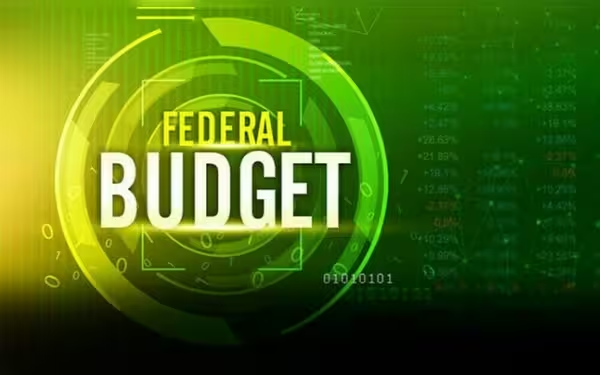Thursday, July 4, 2024 06:33 PM
Pakistan's Federal Budget 2024-2025 Raises Stagflation Concerns
- Stagflation fears due to lack of sustainable growth strategy
- Criticism on untaxed sectors like retailers and wholesalers
- Heavy emphasis on loan servicing raises debt sustainability concerns
 Image Credits: brecorder
Image Credits: brecorderThe Federal Budget 2024-2025 in Pakistan sparks concerns over stagflation, lack of tax reforms, heavy debt burden, and impact on exports and investment.
The Federal Budget for the fiscal year 2024-2025 has sparked concerns about Pakistan's economic future, with predictions of stagflation looming. Stagflation, a worrisome economic scenario marked by high inflation, high unemployment, and stagnant demand, is feared to be the outcome of this budget. The lack of a clear strategy for sustainable growth and job creation has raised eyebrows among experts.
The budget's primary focus appears to be on revenue generation, with targets set to collect approximately Rs 12,970 billion through taxes and an additional Rs 4,000 billion from non-tax sources, aligning with IMF guidelines. However, the reliance on external assistance and the absence of robust economic reforms within the budget have drawn criticism.
One of the major criticisms revolves around the budget's failure to address significant untaxed sectors like retailers and wholesalers, which play a vital role in the economy. Initiatives such as the 'Tajir Dost Scheme' have shown limited success in bringing these sectors into the tax net, indicating a pressing need for comprehensive tax reforms.
Moreover, the heavy emphasis on current expenditures, particularly loan servicing, raises concerns about the sustainability of Pakistan's debt burden. A substantial portion of revenue allocated to interest payments on loans poses challenges for investing in new projects and job creation, potentially impeding long-term economic growth.
The impact of the budget on key sectors such as exports and foreign direct investment is also being closely monitored. The significant increase in tax rates for export income could negatively affect export-oriented industries, potentially reducing competitiveness and deterring investment in value-added exports.
The Federal Budget 2024-2025 highlights the urgent need for comprehensive reforms in Pakistan's economic landscape. Addressing issues like tax evasion, debt management, and export competitiveness is crucial for steering the country towards a more stable and prosperous future.













